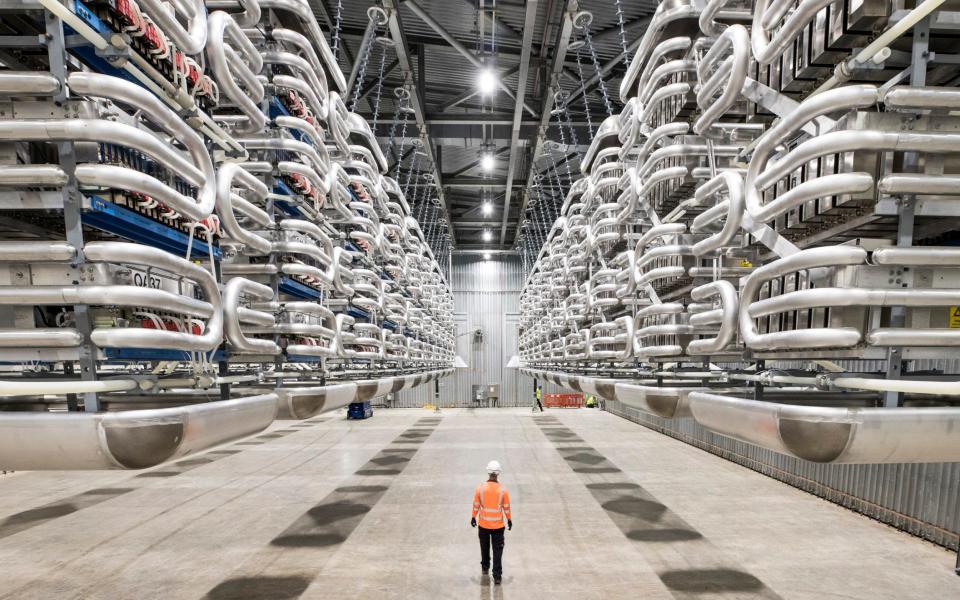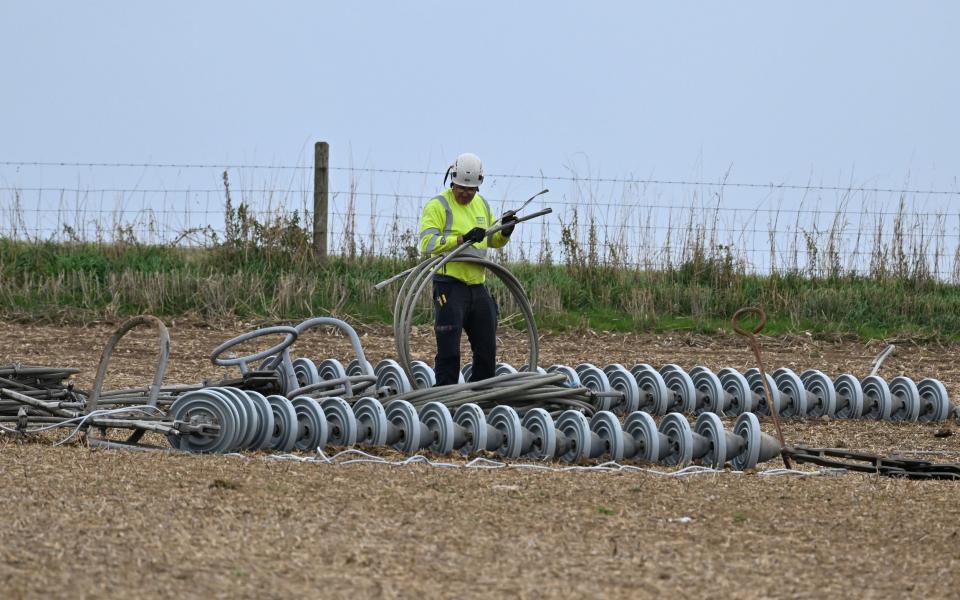Electricity grid delays sink plans for new fuel cell development centre

One of Britain’s leading energy technology companies has been forced to shelve plans for a new development centre after being told it would take up to seven years to get connected to Britain’s power grid.
Ceres Power is scaling back its plans after being quoted long waits and costs of up to £15m for a connection to the electricity grid.
The development adds to growing concerns that problems with Britain’s creaking power infrastructure are holding back development and economic growth.
Ceres Power, which was spun out of Imperial College London and now has deals with global giants such as Shell and Bosch, warned it was having to “accept a level of compromise which no doubt slows our pace of growth and innovation”.
The fuel cell maker added: “If we want to create high growth companies, it is not just access to skilled people, we also need the right infrastructure to match the pace of our growth.”
Constraints on Britain’s electricity grid are emerging as a huge national challenge, with more and more projects such as wind turbines seeking connections, and electricity demand rising as a result of increased adoption of electric cars and population growth.
Phil Caldwell, chief executive of Ceres Power, said constraints were a “real issue for growth for industrial companies”.
Some renewable energy projects have been told they need to wait more than a decade to get connected to the grid. The South East faces particular challenges as a result of a large number of data centres in the area and high demand. Housing projects in west London have reportedly stalled as a result.
The experience of a company such as Ceres Power is likely to raise alarm in Whitehall, given its importance as a British technology success story. Anne-Marie Trevelyan, then international trade secretary, visited the company’s facilities in South Korea in 2022 as it signed a £43m partnership with South Korean conglomerate Doosan.
Ceres, currently valued at about £847m on AIM, makes fuel cells that can generate electricity from natural gas or other gases and can also be used in reverse as electrolysers to make hydrogen.
It started looking for a new site to develop its technology in the summer of 2021. The site, which would have created about 50-80 jobs, required significant power supplies as Ceres’ technology is energy intensive.
The company said it received quotes for connections of £5m to £15m and waits of four to seven years, depending on the location, which “doesn’t keep pace with our growth ambitions”.
Instead, it will try to expand testing work at an outsourced site in the Midlands and upgrade an existing site in Horsham. It is also considering using its own fuel cells to help meet its power needs.

Chief executives are increasingly raising the alarm about the impact of non-financial barriers such as grid connections and planning delays to growth in the UK.
Simon Thomas, chief executive of graphene chip maker Paragraf, told The Telegraph that council officials’ indecision was costing his company “near on a million pounds” as vital machines were left without power.
Mr Thomas complained that local council officials had left his factory standing idle for six months over planning permission for an electricity cable.
“We took that facility knowing full well that the grid was able to supply us with the correct amount of power,” said Simon Thomas.
“In the next six months, we're going to have to pay near on a million pounds ourselves to get our own infrastructure put in to get the power to our building.”
Mr Thomas continued: “The local planning [system]... is basically not capable of supplying manufacturing businesses unless you're an extraordinary case.”
Huntingdonshire District Council, which handles planning applications in the area, was approached for comment.
A spokesman for Energy Networks Association, which represents the UK’s energy network operators, said: “Network Operators will deliver £31bn of investment over the next five years to improve grid infrastructure and help ensure the UK’s energy systems can meet the demands of the Net Zero transition, including connecting renewable generation schemes large and small.
“To reach our Net Zero targets, we need more than just investment as other issues remain, particularly around planning and regulation.
“In order to more quickly connect more renewable generation we need three things - a continued focus on innovation and flexibility, investment to enable network capacity in anticipation of future need, and a coordinated and accelerated planning system which brings together local and national ambitions.”
A Government spokesman said: "The government is committed to accelerating the build and capacity of electricity network infrastructure to meet the requirements of new connections, including commercial buildings and renewable generation.
“We will continue to work with Ofgem and Industry to address barriers to connecting to the electricity network and to accelerate Britain’s electricity connections."

 Yahoo Finance
Yahoo Finance 